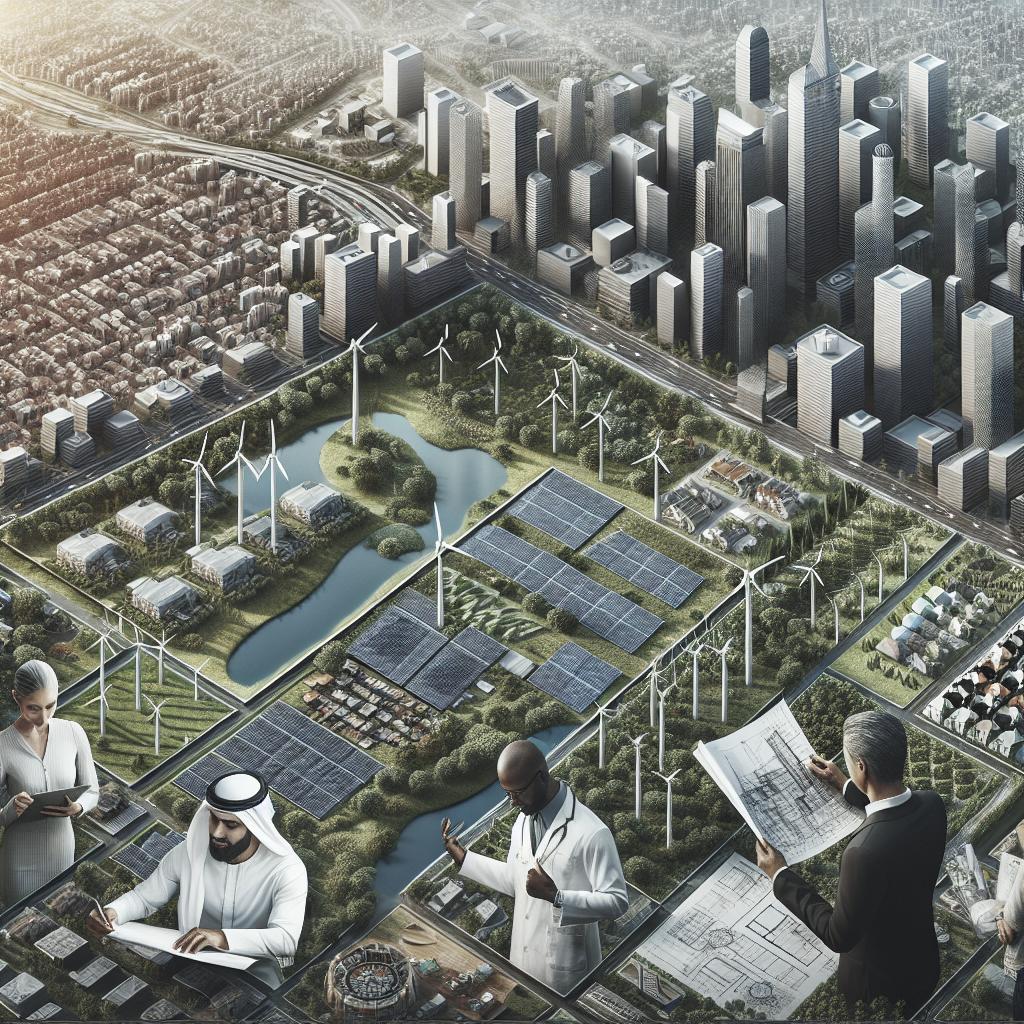<>
Designing for energy resilience in urban areas is an urgent endeavor in the face of accelerating climate change, rising populations, and sprawling urbanization. This blog post explores emerging strategies and real-world examples that illustrate how cities are reimagining their energy landscapes. We’ll delve into evolving resilience strategies, using Mumbai as a case study for its unique approach to urban coastal resilience, and examine forward-thinking digital solutions from Cape Town and StateUp in shaping future-ready cities. Each section will provide insightful knowledge and resources, empowering policymakers, architects, and city planners to build smarter, more resilient urban environments.
News and Resources
Designing for energy resilience in urban areas involves harnessing a variety of strategies, tools, and technologies to ensure cities can withstand and adapt to energy-related challenges. The significance of this focus is underscored by recent news highlighting the increasing frequency and intensity of climate events, and the rapid technological advancements in energy systems.
For instance, smarter grid technologies, renewable energy integration, and advanced analytics are just a few of the latest tools making waves. Articles from leading publications such as the International Energy Agency (IEA) and World Resources Institute (WRI) serve as essential reads for anyone looking to stay informed on best practices and innovative solutions in urban energy resilience.
A varied approach enriches the pool of information and practical knowledge, ranging from research reports and white papers to webinars and conferences that convene thought leaders, policymakers, and industry experts. These resources collectively paint a comprehensive picture, helping stakeholders formulate robust, future-proof resilience strategies.
A Guide to Updating Resilience Strategies for Success
In updating resilience strategies for urban areas, it is crucial to consider multi-dimensional approaches that encompass social, economic, and environmental factors. Integrating these approaches can transform traditional resilience strategies, making them more adaptive to changing conditions and emerging threats. Key elements include decentralized energy systems, microgrids, and robust policy frameworks that support renewable energy adoption.
Community engagement and stakeholder collaboration are indispensable for the successful implementation of resilience strategies. Active participation from local communities ensures that the strategies are not only inclusive but also tailored to the unique needs and vulnerabilities of each urban area. Initiatives such as participatory planning workshops and public forums can foster a sense of ownership and responsibility, enhancing the overall effectiveness of resilience measures.
Additionally, continuous monitoring and evaluation are important to assess the effectiveness of implemented strategies. Leveraging data analytics and AI can provide valuable insights, enabling policymakers to make informed decisions and adjust strategies in real time. This adaptive management approach ensures that resilience strategies remain relevant and effective in the face of evolving challenges.
Urban Ocean: Mumbai
Mumbai, a bustling metropolis on the western coast of India, faces unique challenges due to its geographical location and dense population. The city’s approach to energy resilience is particularly noteworthy for its focus on coastal resilience and urban planning. Mumbai has leveraged a combination of modern engineering solutions and traditional knowledge to mitigate the impacts of rising sea levels and extreme weather events.
The Mumbai Climate Action Plan (MCAP) is a flagship initiative that outlines comprehensive strategies to enhance the city’s energy resilience. Key components of the MCAP include promoting renewable energy sources, enhancing energy efficiency in buildings, and implementing decentralized energy systems. These initiatives aim to reduce the city’s carbon footprint and ensure a stable energy supply even during adverse conditions.
Moreover, Mumbai’s approach to urban resilience is characterized by its emphasis on public-private partnerships. Collaboration between government agencies, private sector stakeholders, and civil society organizations has been instrumental in mobilizing resources and expertise. This multi-stakeholder approach has facilitated the implementation of innovative solutions, such as solar-powered community centers and resilience hubs, that enhance the city’s overall energy security.
Episode 22: Future-ready cities: Digital Solutions shaping the urban landscape featuring Cape Town and StateUp
In Episode 22 of our podcast series, we explore how digital solutions are revolutionizing urban energy resilience, with a spotlight on Cape Town and the innovative initiatives spearheaded by StateUp. Cape Town’s journey towards becoming a future-ready city is marked by its adoption of smart grid technologies, digital twins, and data analytics to optimize energy consumption and distribution.
A key highlight of Cape Town’s strategy is the integration of Internet of Things (IoT) devices and sensors across the city’s energy infrastructure. These devices collect real-time data on energy usage, enabling the city’s energy management systems to identify inefficiencies and predict potential disruptions. This proactive approach ensures that Cape Town can swiftly respond to energy challenges, minimizing downtime and enhancing overall resilience.
StateUp, a data-driven urban innovation firm, has played a pivotal role in shaping Cape Town’s energy resilience framework. Through its cutting-edge solutions, StateUp has facilitated the deployment of virtual power plants and energy-as-a-service models, which optimize energy storage and distribution. These innovations not only enhance energy security but also promote the integration of renewable energy sources, aligning with Cape Town’s sustainability goals.
Lessons Learned
The endeavor to design for energy resilience in urban areas encompasses a range of strategic approaches and cutting-edge technologies, exemplified by the diverse case studies and practical insights discussed in this blog post. From Maharashtra’s integrated coastal resilience measures to Cape Town’s digital advancements in energy management, each illustrates the valuable lessons that can be drawn to fortify urban environments against energy challenges.
| Subheading | Key Points |
|---|---|
| News and Resources | – Recent climate events and technology advancements – Importance of diversified informational resources – Integration of various tools and strategies |
| Updating Resilience Strategies | – Multi-dimensional approaches – Community engagement and stakeholder collaboration – Continuous monitoring and adaptive management |
| Urban Ocean: Mumbai | – Focus on coastal resilience and urban planning – Mumbai Climate Action Plan (MCAP) – Public-private partnerships |
| Future-ready cities: Digital Solutions | – Cape Town’s adoption of smart grid technologies – Integration of IoT and data analytics – Role of StateUp in deploying energy innovations |
By examining these diverse strategies and leveraging the insights gained from global examples, urban planners and policymakers can craft resilient, sustainable energy frameworks that will safeguard cities against future challenges.


